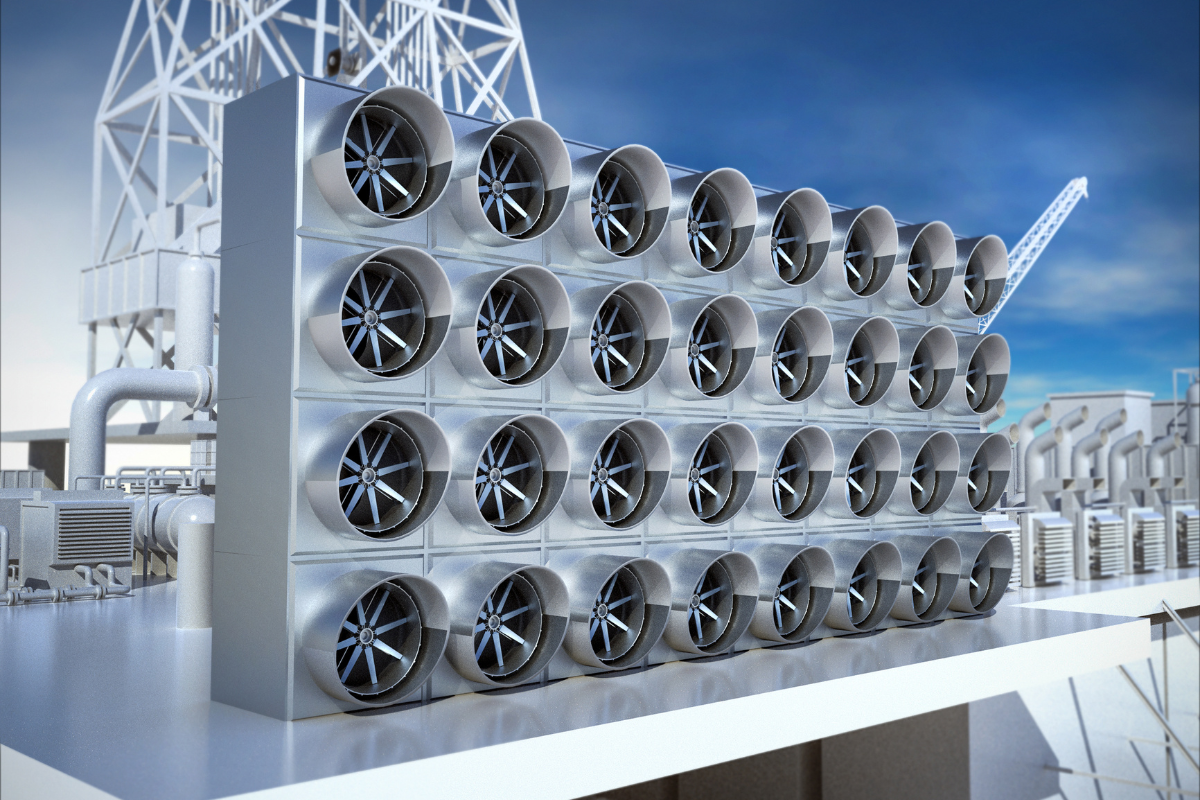
The Department of Energy (DOE) Office of Fossil Energy and Carbon Management (FECM), in collaboration with the Office of Clean Energy Demonstrations (OCED) and the National Energy Technology Laboratory (NETL), has announced the selection of the Prairie Research Institute (PRI) at the University of Illinois Urbana-Champaign to lead three Topic Area 1 (Feasibility) Regional Direct Air Capture (DAC) Hubs. ISTC is the project lead. Read the full DOE announcement here.
DAC is a process that separates carbon dioxide (CO2) from the air, helping to reduce legacy CO2 in the atmosphere. The separated CO2 can then be safely and permanently stored deep underground or converted into useful carbon-containing products like concrete that prevent its release back into the atmosphere.
The three hubs are:
Illinois Basin Regional DAC Hub — Board of Trustees of the University of Illinois (Urbana, Illinois) will lead an effort to promote promising technologies that can capture CO2 from the atmosphere and store it in the Illinois Basin – a proven geological storage strata stretching under Illinois, Indiana, and Kentucky. The Illinois Basin Regional DAC Hub intends to develop cooperative relationships between DAC technology providers, green energy providers, CO2 transportation networks, and companies seeking to pump CO2 underground or use it in industrial processes.
DOE Funding: $2,938,528
Non-DOE Funding: $808,057
Total Value: $3,746,585
Colorado (Pueblo) Regional DAC Hub — Board of Trustees of the University of Illinois (Urbana, Illinois) will lead an effort to promote promising technologies that can capture CO2 from the atmosphere and store it underground and develop a DAC hub that will build upon previous geological studies conducted on the Denver-Julesburg Basin. The Colorado Regional DAC Hub intends to develop cooperative relationships between DAC technology providers, green energy providers, CO2 transportation networks, and companies seeking to pump CO2 underground or use it in industrial processes.
DOE Funding: $2,999,992
Non-DOE Funding: $751,646
Total Value: $3,751,638
Florida Regional DAC Hub — Board of Trustees of the University of Illinois (Urbana, Illinois) will lead an effort to promote promising technologies that can capture CO2 from the atmosphere and store it underground in the Tuscaloosa Group (thick, permeable saline aquifers 4,920 to 7,050 feet deep). The Florida Regional DAC Hub intends to develop cooperative relationships between DAC technology providers, green energy providers, CO2 transportation networks, and companies seeking to pump CO2 underground or use it in industrial processes.
DOE Funding: $2,778,670
Non-DOE Funding: $791,394
Total Value: $3,570,064

